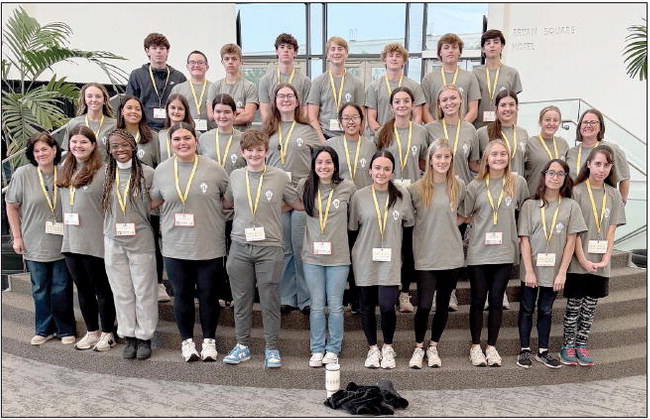General Assembly expected to take up state-level Earned Income Tax Credit
With Georgia’s finances in better shape than last year at this time, the General Assembly is expected to consider tax relief this winter aimed at low- and middleincome Georgia families.
House Bill 510, which was introduced last February, would provide a statelevel Earned Income Tax Credit (EITC) modeled after a federal tax credit that has been around since 1975. A state EITC would help prop up the bottom lines of working Georgians whose livelihoods were disrupted by the coronavirus pandemic, said Georgia Rep. Ron Stephens, one of the bill’s cosponsors. “The other side believes cutting government checks is the answer,” said Stephens, R-Savannah. “We believe in incentivizing those people who will go out and work to continue to work.” Democrats as well as Republicans back the legislation. Rep. Scott Holcomb, D-Atlanta, is also among its cosponsors. The measure also enjoys public support. A statewide poll released last month by the Georgia Budget and Policy Institute found nearly 70% approval for using some of Georgia’s share of federal COVID-19 relief funds to create a statelevel Earned Income Tax Credit. Danny Kanso, a senior policy analyst with the institute, said President Joe Biden’s $1.2 trillion infrastructure bill making its way through Congress will provide plenty of money for water and sewer improvements and expanding broadband in Georgia. That means the $4.8 billion the state will be receiving from the American Rescue Plan Congress passed last March should be available for the proposed tax credit, he said. The credit would cost the state about $130 million a year, according to the institute’s calculations.
“It would benefit over a million kids in Georgia and their families,” Kanso said. “In some rural counties, above 50% of the families are eligible. That’s a strong motivator for rural lawmakers.”
Under House Bill 510, Georgians would qualify for the state-level EITC if they are eligible to receive the federal tax credit. The state-level credit would equal 10% of what qualified taxpayers receive from the federal credit.
Kanso said nearly 30 states already have a statelevel Earned Income Tax Credit, including South Carolina and other heavily Republican states.
Kyle Wingfield, president and CEO of the Georgia Public Policy Foundation, said the budget surplus the state has built up despite the economic ravages of the pandemic means the General Assembly can afford a state-level EITC.
“Georgia’s good fiscal stewardship, especially during the pandemic, has put it in a good position to provide relief to Georgia taxpayers,” Wingfield said. “We expect a variety of strong proposals to do just that.”
Stephens said he expects legislative Republicans to push several taxrelief proposals during the 2022 legislative session, including a further rollback of Georgia’s income tax rate. Lawmakers reduced the rate from 6% in 2018 to 5.75% but have yet to deliver a promised second round of tax cutting, citing the effects of the pandemic on the state’s finances.
Stephens said he’d like to see the state income tax rate reduced to 5.5% or less.
“We need to cut back our income tax to compete with surrounding states, particularly North Carolina,” he said.
Besides cutting Georgia’s income tax rate and providing a state-level Earned Income Tax Credit, Stephens said lawmakers also may consider exempting retired veterans from state income taxes.
This story available through a news partnership with Capitol Beat News Service, a project of the Georgia Press Educational Foundation.







